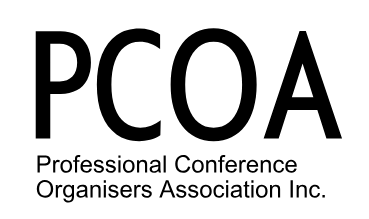So you’ve defined your event goals and booked the venue, now it’s time to focus your attention on selecting the all-important menu. The Gold Coast Convention and Exhibition Centre (GCCEC)’s event managers and chefs share advice and tips on planning and implementing a successful conference menu.
1. Assess your event and audience
Your menu needs to reflect a solid understanding of your demographic. It’s crucial when selecting the type of menu to complement each function of your program.Whether you’re considering banquet style,plated, stand-up, gala dinner, morning or afternoon tea; be aware of how demographics such as male/female ratio can underpin your event and impact catering preferences.This should not be overlooked. Ultimately serving kale is unlikely to be popular with a technology-based delegation, so ensure you divulge as much information as possible to your event manager. They will need to know if all or part of the catering for your conference will be attributed to the venue. This will greatly reduce food waste and heighten your event’s sustainability consciousness.Depending on the type of menu selected,you may be able to donate leftover food to charities such as Oz Harvest, who has partnerships with key venues, so check with your event manager.
2. Set a budget
Ensure your budget fits with the experience and theme you choose and use it wisely,especially if you are planning a gala dinner on a budget. Guests won’t remember if you have chair covers or not, but they will remember if you served quality food and beverages that were paired perfectly. Offering local craft beer instead of imported is an alternative that is not only on trend but can offer you a point of difference.
3 Menu selection
When making decisions, remember to consider what’s in season and use that to your advantage. Not only will it be budget-friendly but seasonal produce and ingredients will deliver the best in quality.In summer, people don’t want heavy food so opt for light dishes such as salads, fish and other seafood. Pick a couple of dishes per function, and be specific with what you want so you don’t overboard the senses with too much choice. Over catering is easy to do and it’s wasteful, so make sure you manage your delegate numbers.If you can menu taste prior to your event, use this golden opportunity to ask questions.If you’re having donuts for morning tea, will quiche be too heavy for afternoon tea? No one knows the food better than the chefs and your event manager has a direct link to the kitchen, so you will receive the best advice on food choices. A good event manager will help you formulate your program around key functions.
4 Timing is everything
Timing between back of house and front of house is crucial for great execution of food delivery. So how does this reflect in your programing? The physical delivery of food is very important, so sticking to a schedule as best as possible will overcome challenges associated with delaying or bringing timing forward too quickly. Give your event organiser as much notice as possible if timing is getting away so the kitchen can adjust cooking times accordingly.Ensure you plan your menu around the type of function, as the menus need to be convenient for you – the client. If hosting a gala dinner the evening prior, opt for a lighter selection of finger sandwiches, single serve items and fruit platters for your morning tea, as people tend to over indulge at gala events.
5 Catering for dietaries
This is an increasing challenge for venues with 20 per cent of guests making requests based on medical, cultural and lifestyle preferences. Whilst some venues have dedicated dietary chefs to meet the demand, it’s best to obtain all dietaries prior to your event. Ensure you dedicate an area specifically catered to dietaries as you will encounter guests that didn’t register their requirements or change their mind. If budget is a concern, you can opt to limit such requests to only accommodate vegetarian,vegan and allergy specific needs.
6 Collaboration and communication
Trust your venue point of contact.They will provide you with a wealth of knowledge to help establish your function menu requirements, and will guide you accordingly so don’t be offended if they tell you something simply won’t work. Collaboration between the client, event manager and the chef is vital to safeguard that nothing is left to interpretation on the day and that no parties are disappointed. Allow your event manager and chef to have creative input and make suggestions – this can give your function the wow-factor and add to your overall success. Interactive food stations or street food-style dining, for example, offers cooking in the room in front of guests. Action stations also allow guests to put finishing touches to their own meal and both add entertainment value and encourage engagement. Whilst budget is a factor, being open to creative suggestion will make delegates happier and more satisfied.
The GCEC has welcomed over 3,300 events over 13 years of operation and is one of the The Professional Conference Organisers Association Inc (PCOA)’s business partners. The 10th Annual PCOA Conference and Exhibition, is being held at the Gold Coast Convention and Exhibition Centre, 26 – 28 November 2017.
